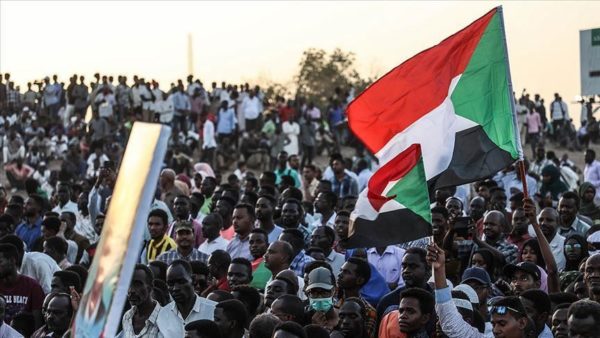Sudan: Security Forces Arrest Three Opposition Leaders After Crisis Mediation Bid
Three prominent opposition figures from Sudan have been arrested by the country’s security forces after they met the Ethiopian prime minister who was in Khartoum to try to restart peace talks.
Mohamed Esmat was arrested on June 7 soon after his meeting with PM Abiy Ahmed, aides said.
Ismail Jalab, a leader of the rebel SPLM-N group, and his spokesman Mubarak Ardol were detained on June 8.
The move comes days after a crackdown on pro-democracy protesters left dozens dead.
Protest leaders have rejected an offer of talks from the Transitional Military Council (TMC), saying it cannot be trusted after the bloodshed.
Sudan has been controlled by the TMC since protests led to the ousting of long-time President Omar al-Bashir two months ago.

Sudan Coup: Protesters Demand Full Dismantling of “Deep State” Left Behind by Ousted President Omar Al-Bashir
Mariam Ibrahim: Sudan apostasy woman to campaign against religious persecution
Ahmed Mohamed Meets Sudan’s President Omar al-Bashir in Khartoum
The military promised a transition to civilian rule but protesters had maintained a sit-in in Khartoum until security forces swept in on June 3 and opened fire.
The whereabouts of Mohamed Esmat are also not clear.
On June 5, the SPLM-N said its deputy head, Yasir Arman, was arrested at his house in Khartoum. He had returned from exile following the downfall of Omar al-Bashir.
Mohamed Esmat and Ismail Jalab are both leading members of the Alliance for Freedom and Change, an umbrella organization of opposition figures, protest leaders and rebel groups.
Khalid Omar Yousef, an opposition alliance leader, told Reuters after Mohamed Esmat’s arrest: “This amounts to a practical response from the military council that effectively rejects the Ethiopian prime minister’s mediation effort.”
The TMC has not yet commented on the arrests.
According to opposition activists, a feared paramilitary unit, the Rapid Support Forces (RSF), killed 108 people in the crackdown, with at least 40 bodies pulled from the River Nile in Khartoum on June 4.
However, officials put the figure at 46. The leader of the RSF claims rogue elements and drug dealers were behind the violence.
The RSF, formerly known as the Janjaweed militia, gained notoriety for brutal atrocities in the Darfur conflict in western Sudan in 2003.
On June 6, the African Union suspended Sudan’s membership “with immediate effect” and warned of further action if power was not transferred to a civilian authority.
The chairman of the African Union commission, Moussa Faki Mahamat, called for an “immediate and transparent” investigation into the killings.
In his visit to Khartoum on June 7, Ethiopia’s PM Abiy Ahmed urged both sides to exercise “bravery” and try to agree steps towards democracy.
Reports said Abiy Ahmed had proposed setting up a transitional council comprised of eight civilians and seven military officers with a rotating presidency. It is not known how the proposal was received.
